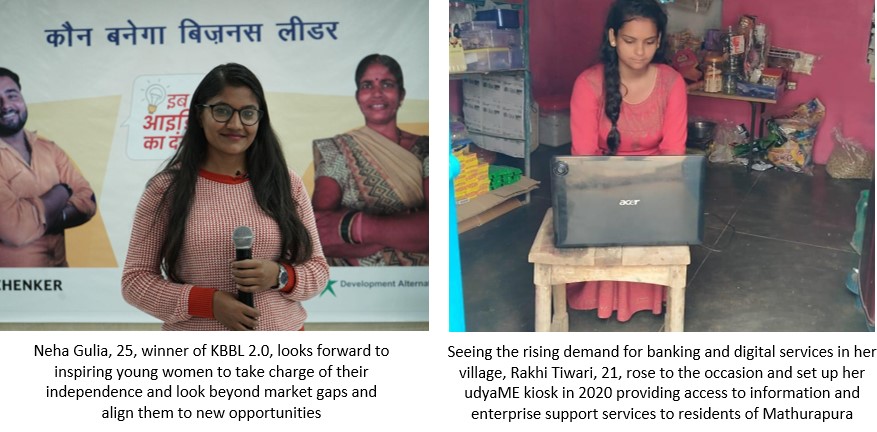|
In 2021−22, India witnessed exponential growth in entrepreneurship with a whopping increase of 14.4% from 5.3% in 2020. During the COVID-19 pandemic, every major economy in the world was impacted and each country including India had to bear the cost of economic contraction, livelihood loss, and increased healthcare expenditure. The rural micro-enterprises of the country played a major role in protecting the lives and livelihoods of the Indian villages in this period. The relevance of these enterprises was reiterated when rural sectors such as agri-allied and micro-enterprises not only survived but also supported more than 4.89 crore jobs between 2020 and 2022. In spite of such potential and showcased impact, the accessibility to innovation in entrepreneurship is limited in nature, especially for rural geographies. This in turn is leading to the entrepreneurship of ‘necessity’ over entrepreneurship of ‘choice’. With the social innovation approach of co-creating design solutions to identified challenges, we asked ourselves, 'How do we nurture innovation in grassroots entrepreneurship?' With this vision, Development Alternatives (DA) co-created Kaun Banega Business Leader (KBBL) in 2017 with the community - a business competition to unleash entrepreneurial energies and build a platform to nurture innovative business solutions. The KBBL prototype has been a receptive tool in understanding and communicating the nuances of entrepreneurship, especially in geographies where hardly any discussion on business takes place. In December 2022, the prototype was customised as Grassroots Innovation Challenge (KBBL 2.0) in Jhajjar, Haryana under the WE-LEAD project. The competition received an overwhelming response from women and youth determined in bringing change through entrepreneurship. Neha Gulia, 25, a young entrepreneur, runs a Common Service Centre. The centre eases the accessibility of information and enterprise support services to her community. When Neha came to know about KBBL 2.0 and the challenge of innovation in the form of business ideas, she applied and emerged as one of the business leaders of Jhajjar. She is now planning to set up her event management enterprise. As rightly said, change begins at home. Neha not only participated but also encouraged her family members. Her mother and younger sister too participated in KBBL 2.0 with pitches for an Indian sweet shop and dance institution, respectively. Neha’s aspiration to become an entrepreneur led to the seeding of an entrepreneurial spirit within her family and among her friends. In Mathurapura of Niwari district, Bundelkhand, Rakhi Tiwari, 21, had similar aspirations. She wished to bring digital accessibility to her local community where people struggled to access schemes, apply for exams, and make online transactions. Brought up by a single mother, at a very young age Rakhi understood the importance of being financially independent. Driven by passion, she equipped herself with digital knowledge through Orchha's Kiosk Centre which was run by another entrepreneur, Devendra Rajak. She analysed the market needs and started her udyaME kiosk in 2020. Today, she supports her family financially and is bridging the digital gap too by inspiring many other young women to pursue their dreams.
Young entrepreneurs are leading innovative solutions enhanced by their knowledge of identifying gaps in local challenges. Shifts in the system require momentum to enable entrepreneurship of choice to diversify the local economy, plug gaps in the market, and respond in the form of future forward opportunities. References Press Information Bureau. 2022. Global Entrepreneurship Monitor. Details available at https://pib.gov.in/PressReleaseIframePage.aspx?PRID=1805875, last accessed on 21 January 2023 Ministry of Micro, Small and Medium Enterprises. 2021. Annual Report 2020/21. New Delhi: Ministry of Micro, Small and Medium Enterprises Narayan, Madhusudan, Manish Vadera, and M L Vadera. 2018. Rural entrepreneurship in India: an overview. International Entrepreneurship and Management Journal 08(04):280−284 Das, Dilip. 2014. Prospects and challenges of rural entrepreneurship development in NER-A Study. International Journal of Humanities & Social Science Studies 1(3): 178−182
Chand Bardewa |
